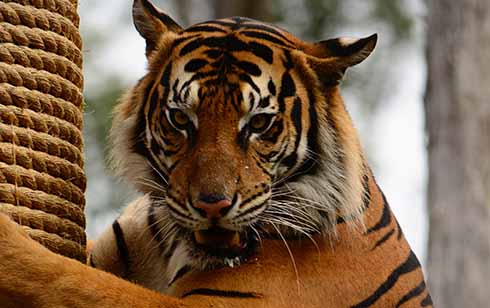 It was said of the Emperor Nero that he fiddled while Rome burned. The phrase is now a commonplace one to describe anyone who focuses on trivia when faced by great danger.
It was said of the Emperor Nero that he fiddled while Rome burned. The phrase is now a commonplace one to describe anyone who focuses on trivia when faced by great danger.
Moviemakers love portraying such people cleaning their surfboards on the beach while a tsunami is coming, or polishing the brass in the kitchen when a tiger is prowling through the front door.
In real life, as in movies, the results can be tragic. That is what makes it disturbing that so many national leaders, including our own, have responded weakly to the threat posed by climate change. This is surely the greatest threat to our world and to our children’s children. There is broad consensus among scientists about the seriousness of the threat and the consequences if we do not address it. But politicians have responded variously by denying there is a problem, ruling out any action that will cost investors money, or by withdrawing from commitments already made.
Politicians’ failures always convict them of poor leadership. But they also show that citizens lack awareness of how urgent the challenge is. If they did, they would put pressure on their leaders to act. We can understand this if we reflect on our own response to climate change. Our minds may tell us that we face a crisis but our actions deny it. We do not see it as something that personally affects us and the people we love. Our response is like that of St Augustine in his prayer, ‘Lord, make me chaste but not yet.’ Although we may see the danger and the need to act, those considerations are outweighed by our fear of losing a life style to which we are attached. Offered a choice between serious attention to the environment and tax cuts, the cuts win out.
Pope Francis has given Catholics strong leadership. He insists that proper care for the environment of which we human beings are part demands more than technical solutions. It requires the kind of personal conversion that might lead us to respond compassionately to refugees and other people who are disadvantaged. In their case we are moved to act only if we stop seeing them as outsiders, and begin to see them as family. If they are wounded, we bleed.
If we care about our family we pay attention to the health and spirits of children, make personal sacrifices for their happiness, budget prudently to ensure their security, and fight tooth and nail for them if they are unjustly treated. This the kind of attention, care and self-sacrifice we need as a society if we are to care for each other and for the environment. As Pope Francis says, the world is our mother.
Main image by Vish K on Unsplash.